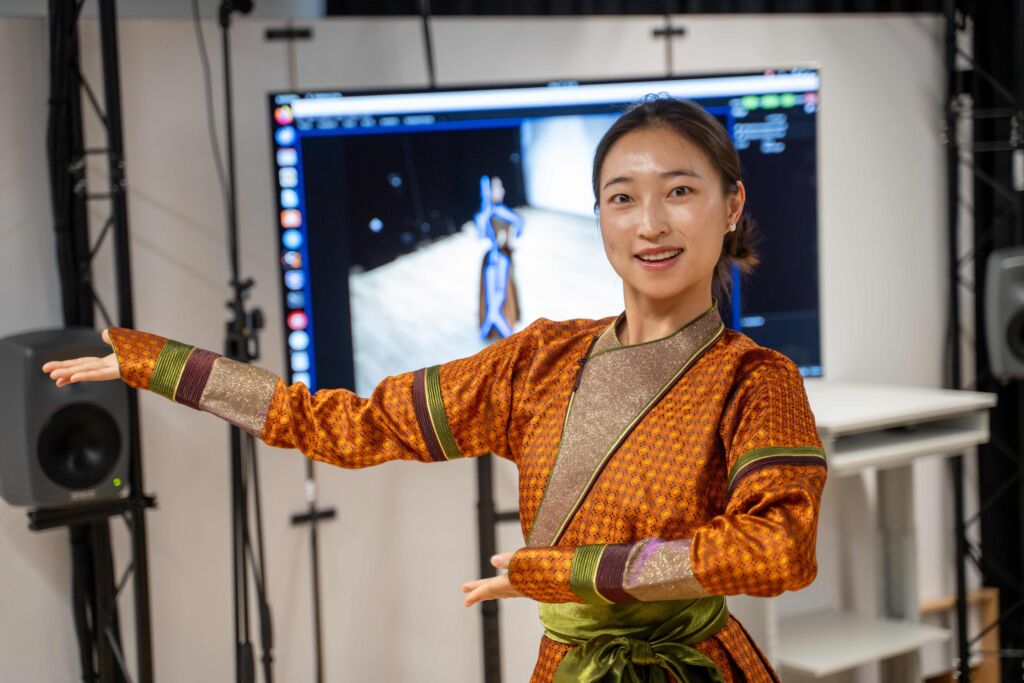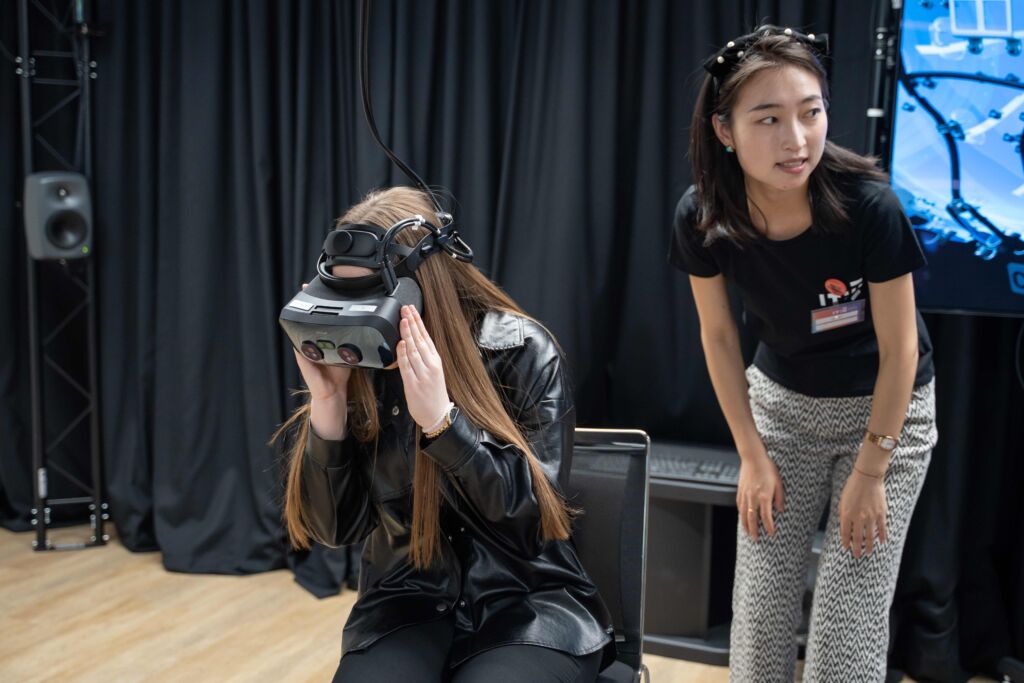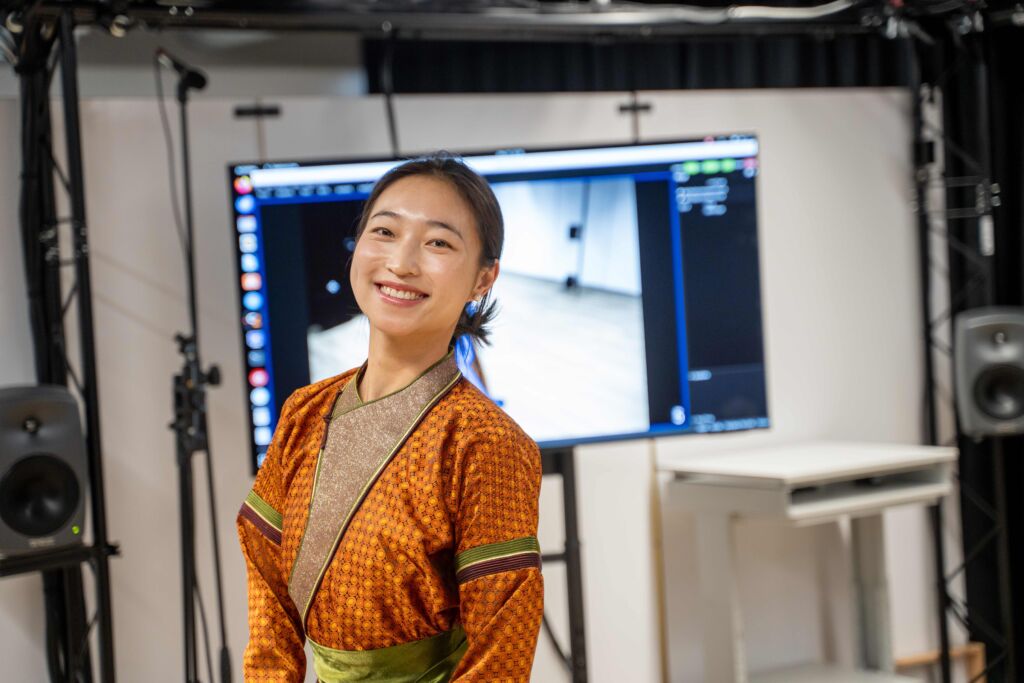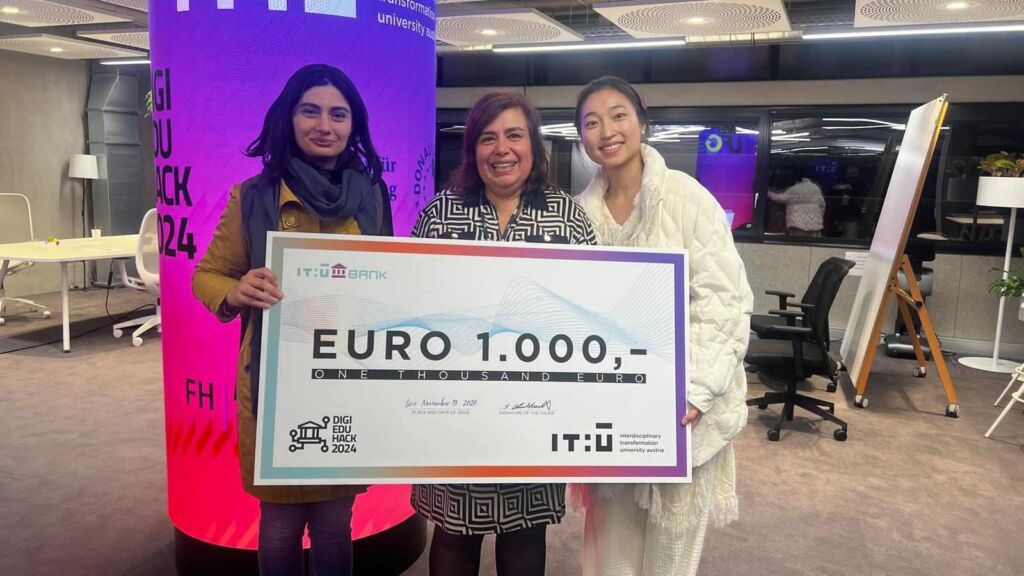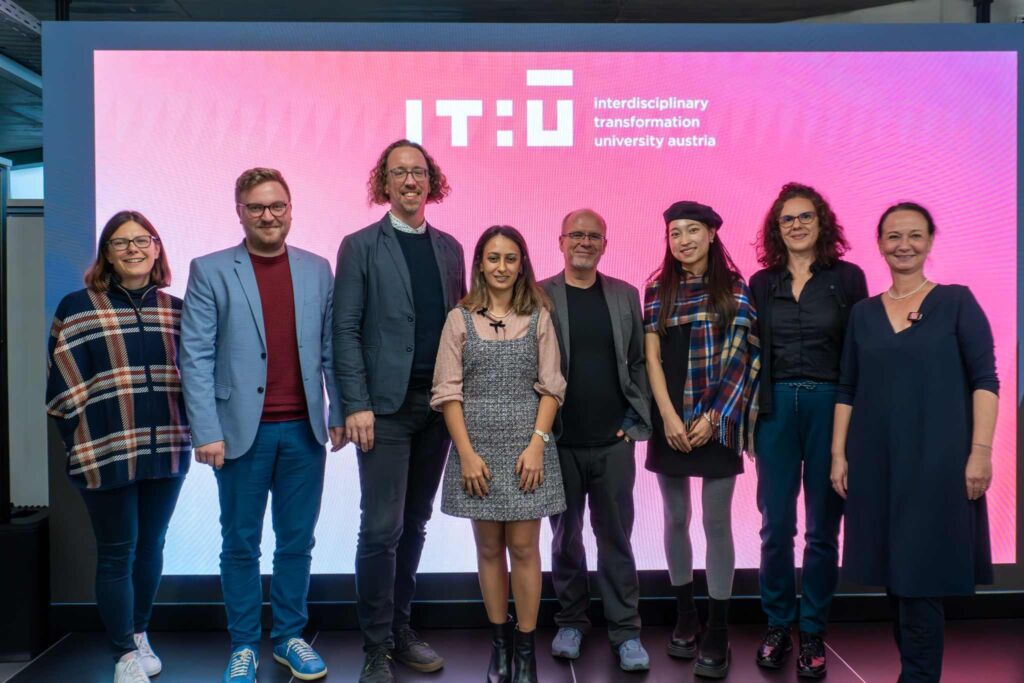Meet Gala Niri – PhD Student in Digital Transformation in Learning
In this series, we take you behind the scenes of PhD life at IT:U — exploring what it means to research, learn, and thrive in an interdisciplinary environment shaped by curiosity and collaboration. Each feature highlights the unique journeys of our students, offering insights into their passions, projects, and personal growth. In this interview, we spoke to Gala Niri, a PhD candidate in the Digital Transformation in Learning program. Her work bridges educational research, AI literacy, and cultural expression — reflecting the dynamic spirit of IT:U’s research community.
Where are you from and what did you do before joining IT:U?
I’m Mongolian from China. Before joining IT:U, I was a PhD student at JKU (Johannes Kepler University), where I majored in STEM (Science, Technology, Engineering and Mathematics) education. I’ve lived in three countries: China, Mongolia, and currently Austria. Each place has shaped me in different ways and given me unique experiences, both personally and academically.
What is your secret talent?
I have many hobbies — dancing, singing, playing instruments, and reading — but dancing is the most special to me. It helps me relax, stay active, and improves my overall well-being. Among the traditional Mongolian dances, my favorite is the Bowl Dance (顶碗舞). It’s elegant and graceful, with smooth movements and delicate balance. When I dance, I feel calm and connected to the spirit of the grasslands. There’s a saying that Mongolians are born to sing and dance — for me, it has always felt like a natural part of life. We often dance whenever we hear music, but traditional dances are especially performed at cultural celebrations like the Naadam Festival. It’s a summer gathering with horse racing, archery, and wrestling — and in the evenings, we sing and dance around the bonfire. It’s a joyful moment where everyone feels free and connected through movement and music.
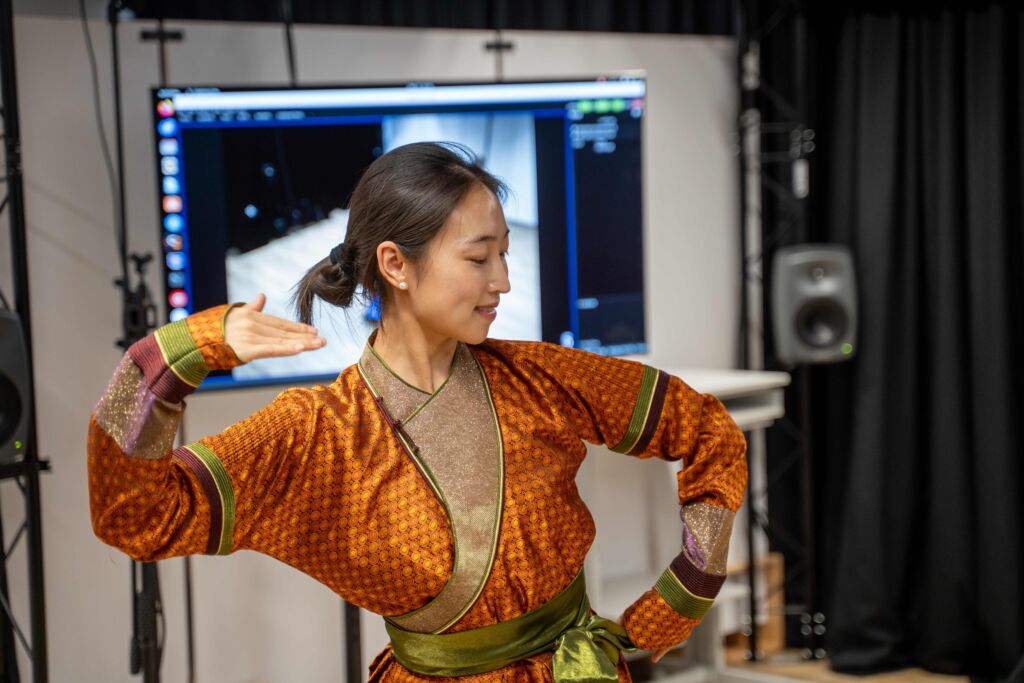
If you had to pick one song for the rest of your life?
That would be Setegliin Tenkhee. It’s a Mongolian song, and the title means The Power of the Mind. This song has given me strength in so many moments. No matter the situation, it always resonates deeply with me. I’ve even cried while listening to it — it’s that powerful.
What is your current research focus?
My current research focus is in the area of AI literacy, as part of the Digital Transformation in Learning group. We’re passionate about shaping the future of education through digital innovation. Specifically, I’m exploring what kinds of AI competencies students need to thrive in modern society. Based on this, I aim to develop relevant digital or technological tools that can support and enhance students’ learning experiences. I’m currently working on a project STEM for AI Literacy. In this project, I’m collaborating with three researchers from Johannes Kepler University (JKU), two from The Chinese University of Hong Kong (CUHK), and one colleague from IT:U. Together, we’re exploring how STEM education can contribute to developing students’ AI literacy in meaningful and practical ways.
How has interdisciplinary learning impacted your work?
My research has greatly benefited from working in interdisciplinary teams at IT:U. One key example is the writing project I’m currently working on, which is part of the third module of our PhD program—Immersive Labs. I’m really grateful to IT:U for supporting this opportunity. The goal of the module is to build interdisciplinary networks across the world, and it has definitely helped me do that. As part of my lab exchange, I visited Professor Thomas Chiu’s team at CUHK. His work in AI education is truly impressive and highly relevant to our Digital Transformation in Learning project. Collaborating with his group has given me valuable insights and inspiration for my own research on AI literacy.
How is IT:U different from your previous academic experience?
The biggest difference at IT:U is the project-based learning approach. Instead of focusing only on traditional coursework or lectures, we engage in hands-on, real-world projects from the very beginning. This approach allows me to apply my knowledge in practical contexts, collaborate with interdisciplinary teams, and develop both research and innovation skills in a more meaningful way.
What’s been your experience with IT:U’s LearnLabs?
I’ve had the chance to work across several of IT:U’s LearnLabs. My main focus has been within the Digital Transformation in Learning group, but I’ve also explored the VR/AR Lab and Motion Lab — both offered fascinating insights. Among them, the RITA – Extended Reality Lab stood out as a personal favourite. Its immersive applications and potential for creative expression and educational purposes left a lasting impression.
What advice would you give to someone (even from a non-technical background) thinking about applying to IT:U?
I actually spoke about this recently with a new PhD student from a non-technical background. He told me that IT:U is very different from what he initially imagined — in a good way — and that he already loves the university.When I asked what impressed him the most, he mentioned three things: the kindness and openness of the people, the high-quality facilities and equipment, and the university’s strong focus on interdisciplinary development, which he found especially innovative. So, my advice to anyone from a non-technical background is: don’t worry too much! IT:U is a welcoming and supportive environment where diverse backgrounds are actually seen as a strength, especially in such an interdisciplinary setting.
Imagine your research reaches its full potential—what kind of impact would it have in 5, 10, or 20 years?
I hope it will make a meaningful impact on how we prepare students for the future—especially in terms of AI literacy. In 5 years, I imagine my work will help shape digital tools and teaching strategies that make AI concepts more accessible and engaging for students from different backgrounds. In 10 years, I hope it contributes to curriculum design and teacher training programs, helping educators integrate AI-related content more confidently and effectively. And in 20 years, I would love to see a generation of learners who not only understand AI but also think critically about its role in society—who are empowered to use technology responsibly, creatively, and ethically. Ultimately, I want my research to support more inclusive and future-ready education systems.
